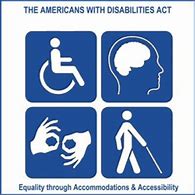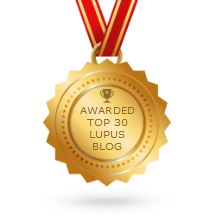Lupus and Working with ADA and FMLA

Working with Lupus challenges every patient because it impacts the activities of daily living needed for holding a job or career. At times, it can be downright difficult to work with lupus, when even getting up in the morning is rough. Thanks in part to the important protections the Americans with Disabilities Act and the Family Medical Leave Act provide to U.S. citizens, it is not impossible.

Recently, we held a meeting at work for the annual discussion of my ADA accommodations. To prepare for my employer’s annual recertification process, some work was required before the next quarterly appointment with my rheumatologist.
Forms for requesting an ADA accommodation were downloaded from my employer’s Human Resources web site, along with an FLMA Certification form. The paperwork included a document for my signature permitting my doctor to share my private medical information with the HR department at work. Because this was not the first year, the prior year’s accommodation and FMLA forms could be used as samples for preparing this year’s forms.
 Once the forms were ready, next came gathering backup documents to attach to the forms:
Once the forms were ready, next came gathering backup documents to attach to the forms:
- My job description
- My most recent written performance appraisal
- “What is Lupus” and a couple of articles that applied best to my work situation from “Lupus and the Workplace” from the Lupus Foundation of America website
- “Employees with Lupus” (14 pages) from the Department of Labor’s ADA website for employees and employers, the Job Accommodation Network
 I set up a meeting with my supervisors a few days before my doctor appointment, telling them about the need to recertify FMLA and update ADA. I gave them each a copy of the forms and the attachments we would talk about at the meeting. This helped prepare them to be ready with anything they might want to suggest for the new year’s accommodation, or have conversations with others about the impacts of my past accommodations.
I set up a meeting with my supervisors a few days before my doctor appointment, telling them about the need to recertify FMLA and update ADA. I gave them each a copy of the forms and the attachments we would talk about at the meeting. This helped prepare them to be ready with anything they might want to suggest for the new year’s accommodation, or have conversations with others about the impacts of my past accommodations.
It is always a great idea for an employee to take charge of initiating any ADA/FMLA process! It helps prevent putting the employee in a defensive position, and demonstrates the employee’s professional approach to workplace challenges related to their disability. By taking the lead in coordinating the conversation my bosses, human resources, and my doctor before the recertification deadline, it helped me be better prepared to respond to any changes they might propose. My bosses and the Human Resources office thanked me for making this aspect of their jobs easier.
 Later, when we met to talk, my bosses both expressed how well my schedule changes and other accommodations had worked out during the past year, and readily agreed with my suggested accommodations for the next year. I asked them if there were any problems or concerns but there were none. The meeting gave us opportunity to talk in more depth about some of my personal and work challenges and struggles due to Lupus. It seems this helped them better understand my commitment to my work, and how willing I am to do my part to make their accommodations of my Lupus successful. Also, my newest boss had many general questions about Lupus that were answered, raising his awareness and understanding.
Later, when we met to talk, my bosses both expressed how well my schedule changes and other accommodations had worked out during the past year, and readily agreed with my suggested accommodations for the next year. I asked them if there were any problems or concerns but there were none. The meeting gave us opportunity to talk in more depth about some of my personal and work challenges and struggles due to Lupus. It seems this helped them better understand my commitment to my work, and how willing I am to do my part to make their accommodations of my Lupus successful. Also, my newest boss had many general questions about Lupus that were answered, raising his awareness and understanding.
Next, at the appointment with my rheumatologist, we talked about my FMLA form, the attached job description, and the attached recent performance appraisal. This conversation was a great way for my doctor to know more about the daily challenges of my lupus, and to help her understand more about me and how I cope with Lupus and work on a daily basis. She had gathered enough information to help her honestly evaluate my performance and the reasonableness of my request for schedule changes.
 Before leaving, I also gave my doctor a copy of the ADA accommodation request I was going to file with the Human Resources office, so she would also be ready when they contacted her to talk about it. It is very important to show that an employee can do the job well with the help of an accommodation, because ADA laws do not protect employees if a reasonable accommodation is not enough to help them do the essential functions of their job. She filled out the FMLA form after the appointment and sent it to my employer’s human resources office.
Before leaving, I also gave my doctor a copy of the ADA accommodation request I was going to file with the Human Resources office, so she would also be ready when they contacted her to talk about it. It is very important to show that an employee can do the job well with the help of an accommodation, because ADA laws do not protect employees if a reasonable accommodation is not enough to help them do the essential functions of their job. She filled out the FMLA form after the appointment and sent it to my employer’s human resources office.
A few days later we sat down for the scheduled meeting to discuss how my intermittent FMLA leave and ADA accommodations had been working out over the past year. We agreed to continue my schedule adjustments that allow a later start to my work and the ability to use telecommuting during flares, when needed. They also shared positive feedback with me received from my co-workers and affirmed that they knew of no negatives resulting from my schedule modifications. This was also a great opportunity to tell them how grateful and thankful I am to have supportive bosses who believe in me and see beyond any limitations my Lupus causes. After the meeting, the final paperwork filed with the Human Resources office documented we had meet and conferred about my accommodations, as the ADA requires them to do, and the human resources department responded by issuing their endorsement of the arrangements.
 Communication and cooperation between employee and employer can make all the difference! With some footwork and planning, a Lupus patient can coordinate workplace accommodations and flexibility for facing health challenges the might otherwise threaten their job. Sometimes, in past years, my bosses have asked me to make some changes to the accommodations, and by meeting and conferring, reached workable solutions that were better for them, while also accommodating my lupus limitations. I am grateful, and thank God frequently for the work situation that I have been blessed to enjoy, where they follow not only the letter of the ADA and FMLA law, but the spirit of it, also.
Communication and cooperation between employee and employer can make all the difference! With some footwork and planning, a Lupus patient can coordinate workplace accommodations and flexibility for facing health challenges the might otherwise threaten their job. Sometimes, in past years, my bosses have asked me to make some changes to the accommodations, and by meeting and conferring, reached workable solutions that were better for them, while also accommodating my lupus limitations. I am grateful, and thank God frequently for the work situation that I have been blessed to enjoy, where they follow not only the letter of the ADA and FMLA law, but the spirit of it, also.

























Recent Comments